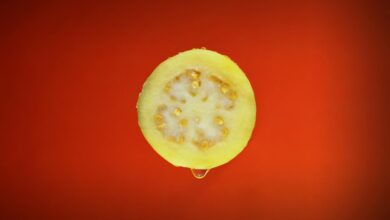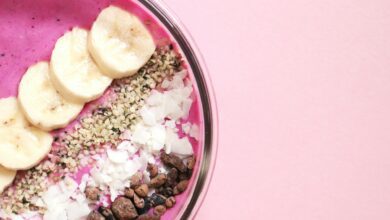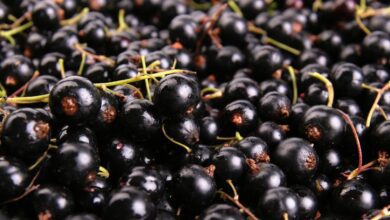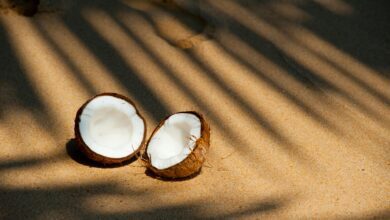The Astonishing Health Benefits of Guava Leaves: A Comprehensive Guide
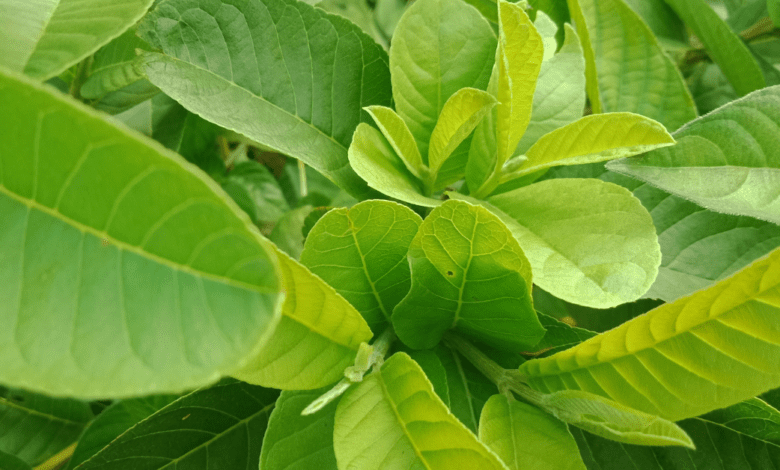
Nutritional Profile of Guava Leaves
Guava leaves are a rich source of various essential nutrients and phytochemicals. A closer look at their nutritional profile reveals the following:
| Nutrient | Amount per 100g |
|---|---|
| Calories | 68 |
| Protein | 4.2g |
| Carbohydrates | 13.2g |
| Fiber | 9g |
| Vitamin C | 228mg |
| Vitamin A | 624 IU |
| Vitamin B6 | 0.1mg |
| Magnesium | 22mg |
| Potassium | 417mg |
| Calcium | 18mg |
These nutrient-dense leaves are particularly rich in vitamin C, which is essential for immune function, collagen production, and antioxidant protection. Additionally, the high fiber content supports healthy digestion, while the presence of various phytochemicals, such as flavonoids and tannins, contribute to the leaves’ remarkable health benefits.
Also read: The Incredible Benefits of Acai: Boost Your Health and Wellness with this Superfood
Antioxidant Properties of Guava Leaves
Guava leaves are renowned for their exceptional antioxidant properties, which can help neutralize harmful free radicals and protect the body from oxidative stress. The leaves contain a diverse array of antioxidant compounds, including:
- Vitamin C
- Polyphenols, such as quercetin and gallic acid
- Carotenoids, like beta-carotene and lycopene
These powerful antioxidants work synergistically to combat the effects of oxidative stress, which is linked to various chronic diseases, including cancer, heart disease, and neurodegenerative disorders. By incorporating guava leaves into your diet or using them in topical applications, you can harness the power of these natural antioxidants to support overall health and well-being.
Anti-Inflammatory Effects of Guava Leaves
In addition to their antioxidant properties, guava leaves possess remarkable anti-inflammatory effects. The leaves contain compounds like tannins and triterpenes, which have been shown to inhibit the production of pro-inflammatory mediators, such as cytokines and prostaglandins.
This anti-inflammatory action can be particularly beneficial for individuals dealing with chronic inflammatory conditions, such as arthritis, asthma, and inflammatory bowel diseases. By incorporating guava leaves into your lifestyle, you can help reduce inflammation and alleviate the associated symptoms, promoting overall well-being.
Guava Leaves for Digestive Health
Guava leaves have long been used in traditional medicine to support digestive health. The leaves are rich in fiber, which can help regulate bowel movements and alleviate issues like constipation, diarrhea, and bloating. Additionally, the leaves contain compounds like tannins and flavonoids that have been shown to possess antimicrobial and anti-inflammatory properties, which can help protect the gut from harmful pathogens and soothe digestive discomfort.
Incorporating guava leaves into your diet, either through tea, supplements, or topical applications, can help maintain a healthy gut microbiome and support overall digestive function. This can lead to improved nutrient absorption, reduced risk of gastrointestinal issues, and a more balanced and resilient digestive system.
Guava Leaves for Weight Management
Guava leaves may also play a role in weight management due to their unique phytochemical composition. The leaves contain compounds like dietary fiber, which can promote feelings of fullness and satiety, thereby reducing caloric intake and supporting weight loss efforts.
Moreover, some studies have suggested that guava leaves may possess thermogenic properties, meaning they can help boost metabolism and increase energy expenditure. This can be particularly beneficial for individuals looking to shed excess weight or maintain a healthy body composition.
By incorporating guava leaves into your daily routine, either through supplements or by adding them to your meals, you can leverage their potential weight management benefits and support your overall health and fitness goals.
Guava Leaves for Diabetes Management
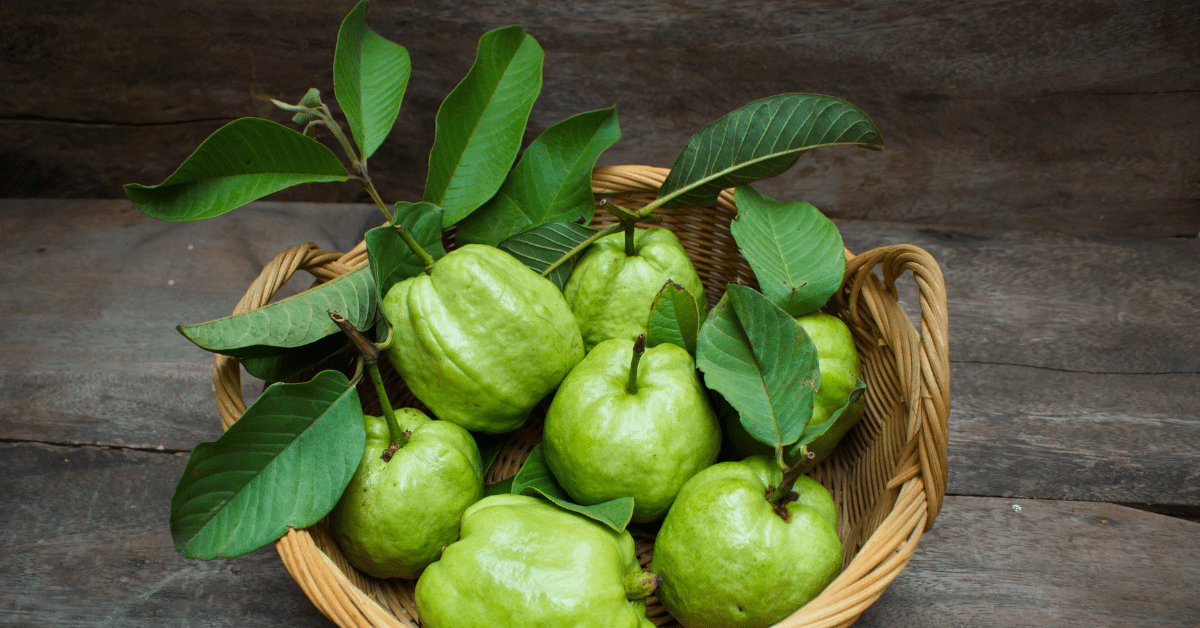
Guava leaves have also been the subject of research for their potential role in diabetes management. The leaves contain compounds like alpha-amylase and alpha-glucosidase inhibitors, which can help regulate blood sugar levels by slowing the absorption of carbohydrates.
Additionally, guava leaves have been found to possess insulin-mimetic properties, meaning they can enhance the body’s sensitivity to insulin and improve glucose uptake by cells. This can be particularly beneficial for individuals with type 2 diabetes or those at risk of developing the condition.
Incorporating guava leaves into your diabetes management plan, either through supplements or by incorporating them into your diet, may help you better manage your blood sugar levels and reduce the risk of diabetes-related complications.
Guava Leaves for Skincare
Guava leaves are not only beneficial for internal health but also have remarkable properties for skincare. The leaves are rich in vitamin C, which is essential for collagen production and skin rejuvenation. Additionally, the leaves contain compounds like tannins and flavonoids that possess antimicrobial and anti-inflammatory properties, making them effective in addressing various skin concerns.
Topical applications of guava leaf extracts or infusions have been shown to be effective in treating acne, reducing the appearance of wrinkles, and improving skin texture and overall complexion. The leaves’ antioxidant properties also help protect the skin from environmental stressors and premature aging.
By incorporating guava leaves into your skincare routine, either through homemade face masks, serums, or as an ingredient in commercial products, you can harness the power of these remarkable leaves to achieve healthier, more radiant skin.
Also read: The Incredible Health Benefits of Black Currants: Unveiling Their Powerful Secrets
How to Use Guava Leaves for Maximum Health Benefits
To maximize the health benefits of guava leaves, you can incorporate them into your lifestyle in various ways:
- Guava Leaf Tea: Brew a soothing and refreshing tea by steeping fresh or dried guava leaves in hot water. Enjoy this tea regularly to reap the benefits of the leaves’ antioxidant and anti-inflammatory properties.
- Guava Leaf Supplements: If fresh or dried leaves are not readily available, consider taking guava leaf supplements, which provide a concentrated dose of the leaves’ active compounds.
- Topical Applications: Utilize guava leaves in your skincare routine by creating homemade face masks, serums, or adding the leaves to your favorite moisturizers and lotions.
- Culinary Incorporation: Experiment with adding guava leaves to your cooking, such as in soups, stews, or even as a seasoning for various dishes. This can help you incorporate the leaves into your regular diet.
- Guava Leaf Extract: Look for products that contain guava leaf extract, such as tinctures or liquid extracts, which can be easily added to beverages or taken as a dietary supplement.
Regardless of the method you choose, be consistent in your consumption or application of guava leaves to experience the full spectrum of their remarkable health benefits.
Precautions and Potential Side Effects of Guava Leaves Consumption
While guava leaves are generally considered safe for consumption, it’s important to be aware of potential precautions and side effects:
- Allergic Reactions: Some individuals may be allergic to guava leaves or their compounds. If you experience any adverse reactions, such as skin irritation or digestive discomfort, discontinue use and consult a healthcare professional.
- Interactions with Medications: Guava leaves may interact with certain medications, such as blood thinners, diabetes medications, and antidepressants. Consult your healthcare provider before using guava leaves, especially if you are taking any prescription drugs.
- Pregnancy and Breastfeeding: There is limited research on the safety of guava leaf consumption during pregnancy and breastfeeding. It’s best to consult with a healthcare provider before using guava leaves if you are pregnant or nursing.
- Dosage Considerations: Follow the recommended dosage instructions, as excessive consumption of guava leaves may lead to side effects like nausea, vomiting, or diarrhea.
By being mindful of these precautions and potential side effects, you can safely incorporate guava leaves into your health and wellness routine and enjoy their remarkable benefits.
Conclusion: Embracing the Power of Guava Leaves for Optimal Health
Guava leaves are a true hidden gem in the realm of natural health and wellness. From their potent antioxidant properties to their anti-inflammatory effects, guava leaves possess an array of remarkable benefits that can positively impact various aspects of our well-being.
By incorporating guava leaves into your lifestyle, you can support digestive health, aid in weight management, and even contribute to the management of diabetes. Moreover, the leaves’ skincare benefits make them a valuable addition to any holistic beauty routine.
Embrace the versatility and potential of guava leaves, and unlock the path to a more balanced, resilient, and thriving you. Embark on this journey of rediscovery and unlock the astonishing health benefits that these unassuming leaves have to offer.
Also read: The Power of Cranberries: Unveiling the Incredible Benefits of Cranberries

